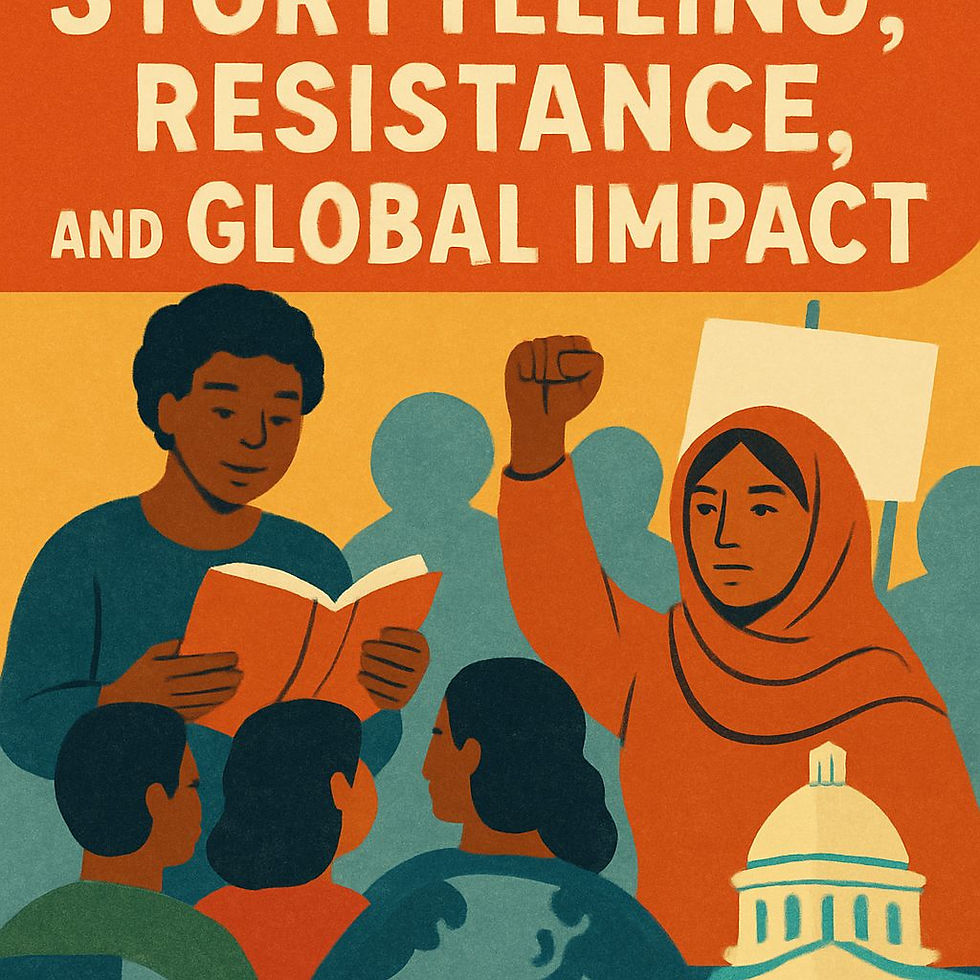African Cinema: A Century of Storytelling, Resistance, and Global Impact
- orpmarketing
- May 27, 2025
- 3 min read

From colonial propaganda to Nollywood blockbusters, African cinema has transformed into a global powerhouse. Over the past century, it has shattered stereotypes, reclaimed narratives, and captivated audiences worldwide. This vibrant tapestry of stories—rooted in struggle, creativity, and cultural pride—reflects Africa’s diverse identities and aspirations. Let’s explore its journey, celebrate its pioneers, and glimpse its boundless future.
The Dawn: From Colonial Screens to Indigenous Voices
Cinema arrived in Africa in 1896, just a year after the Lumière brothers’ first Paris screening. But early films, shown in cities like Cairo and Tunis, were tools of colonial propaganda, portraying Africans as exotic “others.” The 1934 Laval Decree in French colonies even banned Africans from filmmaking.
Yet pioneers defied these barriers. Albert Samama Chikly screened documentaries in Tunisia as early as 1905, while his 1924 film The Girl from Carthage marked North Africa’s first cinematic milestone. In Egypt, Aziza Amir produced Laila (1927), the continent’s debut feature film, sparking Egypt’s Golden Age of cinema. These trailblazers planted seeds for a revolution.
Pioneers: Reclaiming the Narrative
The 1960s independence era birthed a new wave of filmmakers determined to tell Africa’s stories on their own terms.
Ousmane Sembène (“father of African cinema”) exposed postcolonial struggles in Borom Sarret (1963) and Emitai (1971), blending history with resistance.
Safi Faye, Africa’s first internationally recognized female director, spotlighted rural Senegal in Kaddu Beykat (1975).
Sarah Maldoror documented anti-colonial movements, notably Angola’s liberation in Monangambee (1970).
Haile Gerima’s Sankofa (1993) reimagined slavery through a Pan-African lens, inspiring global Black cinema.
These visionaries didn’t just make films—they ignited a cultural uprising.
The Golden Age: African Cinema Today
African cinema is thriving, powered by digital innovation and global demand for authentic stories.
Nollywood: Nigeria’s film industry produces ~2,500 movies yearly, rivaling Hollywood and employing over 1 million people.
Streaming Giants: Netflix and Showmax have licensed 100+ African films, amplifying voices from Dakar to Johannesburg.
Genre Diversity: From Afrofuturism (Pumzi, 2009) to Nollywood thrillers, filmmakers are pushing boundaries.
Stars on the Rise: Lupita Nyong’o, Danai Gurira, and Chiwetel Ejiofor bridge African talent with Hollywood acclaim.
Festivals like Burkina Faso’s FESPACO and London’s Film Africa showcase 70+ films annually, proving African stories resonate globally.
Unforgettable Films That Made History
Ceddo (1977): Ousmane Sembène’s tale of rebellion against colonial and religious oppression became a Pan-African manifesto.
Lumumba (2000): Raoul Peck’s haunting portrait of Congo’s assassinated leader forced a reckoning with colonial brutality.
18 Hours (2017): Kenyan director Njue Kevin turned a dorm-room idea into an award-winning thriller.
Yeelen (1987): Souleymane Cissé’s mystical Mali epic won Cannes acclaim, despite being banned at home.
Challenges: The Roadblocks Ahead
Despite progress, hurdles persist:
Infrastructure: Just 1 cinema screen per 787,402 Africans—the world’s lowest ratio.
Piracy: Drains 50-75% of revenue, crippling indie filmmakers.
Censorship: Films like The Writer From a Country Without Bookstores face government bans.
Distribution: Economic pressures push filmmakers to prioritize Western festivals over local audiences.
The Future: Lights, Camera, Transformation
The horizon gleams with potential:
Economic Powerhouse: UNESCO predicts African cinema could add $20 billion to GDP and create 20 million jobs.
Tech Revolution: Smartphones and platforms like TikTok empower micro-budget storytelling.
Global Collaborations: Netflix’s $2M fund with South Africa fuels cross-border projects.
Youth Innovation: Kenya aims for a $912M film industry by 2030, led by talents like Njue Kevin.
Icons and Rising Stars
Lupita Nyong’o: Oscar-winning star of 12 Years a Slave and Black Panther.
Genevieve Nnaji: Nollywood royalty turned Netflix director (Lionheart).
Papa Wemba: Congolese music legend turned actor in La Vie est Belle (1987).
Final Reel: Why African Cinema Matters
African cinema isn’t just entertainment—it’s a mirror of the continent’s soul. From Sembène’s defiant classics to Nollywood’s viral hits, it challenges stereotypes and celebrates resilience. While piracy and censorship loom, digital tools and passionate storytellers are rewriting the script. As curator Keith Shiri says, “African cinema is like a dream—it can’t be controlled, and it never stops evolving.”
So, grab some popcorn. The next act in Africa’s cinematic journey is about to begin.




Comments